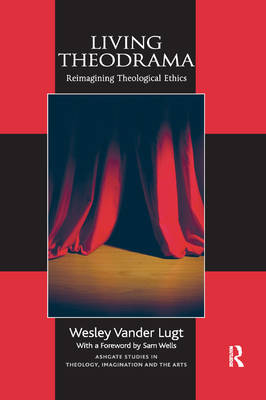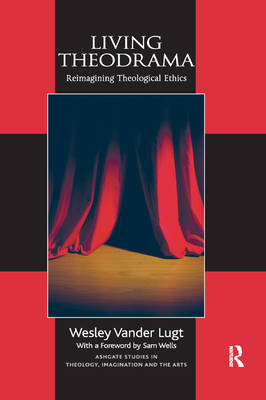
Bedankt voor het vertrouwen het afgelopen jaar! Om jou te bedanken bieden we GRATIS verzending (in België) aan op alles gedurende de hele maand januari.
- Afhalen na 1 uur in een winkel met voorraad
- In januari gratis thuislevering in België
- Ruim aanbod met 7 miljoen producten
Bedankt voor het vertrouwen het afgelopen jaar! Om jou te bedanken bieden we GRATIS verzending (in België) aan op alles gedurende de hele maand januari.
- Afhalen na 1 uur in een winkel met voorraad
- In januari gratis thuislevering in België
- Ruim aanbod met 7 miljoen producten
Zoeken
Omschrijving
Living Theodrama is a fresh, creative introduction to theological ethics. Offering an imaginative approach through dialogue with theatrical theory and practice, Vander Lugt demonstrates a new way to integrate actor-oriented and action-oriented approaches to Christian ethics within a comprehensive theodramatic model. This model affirms that life is a drama performed in the company of God and others, providing rich metaphors for relating theology to everyday formation and performance in this drama. Different chapters explore the role of the triune God, Scripture, tradition, the church, mission, and context in the process of formation and performance, thus dealing separately with major themes in theological ethics while incorporating them within an overarching model. This book contains not only a fruitful exchange between theological ethics and theatre, but it also presents a promising method for interdisciplinary dialogue between theology and the arts that will be valuable for students and practitioners across many different fields.
Specificaties
Betrokkenen
- Auteur(s):
- Uitgeverij:
Inhoud
- Aantal bladzijden:
- 256
- Taal:
- Engels
- Reeks:
Eigenschappen
- Productcode (EAN):
- 9780367879303
- Verschijningsdatum:
- 12/12/2019
- Uitvoering:
- Paperback
- Formaat:
- Trade paperback (VS)
- Afmetingen:
- 156 mm x 234 mm
- Gewicht:
- 362 g

Alleen bij Standaard Boekhandel
+ 173 punten op je klantenkaart van Standaard Boekhandel
Beoordelingen
We publiceren alleen reviews die voldoen aan de voorwaarden voor reviews. Bekijk onze voorwaarden voor reviews.









